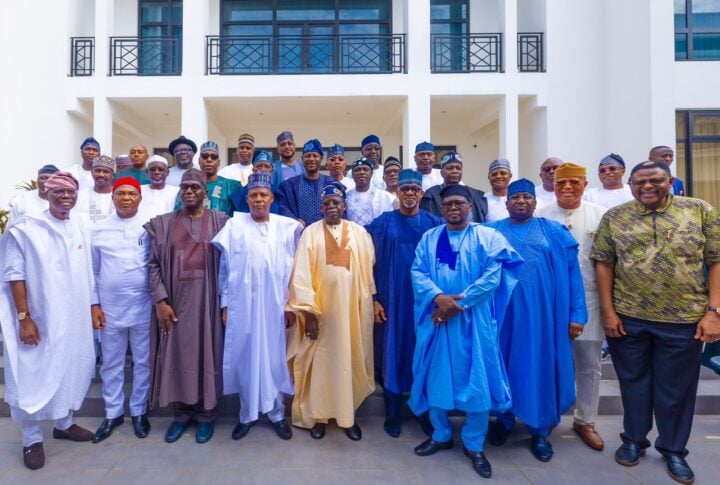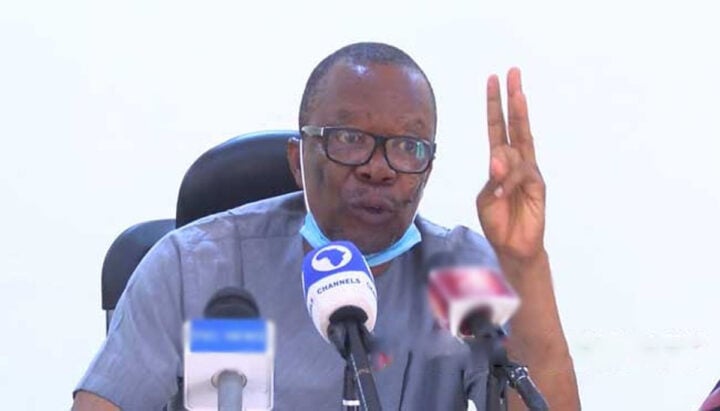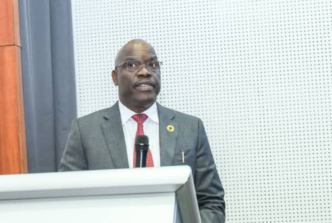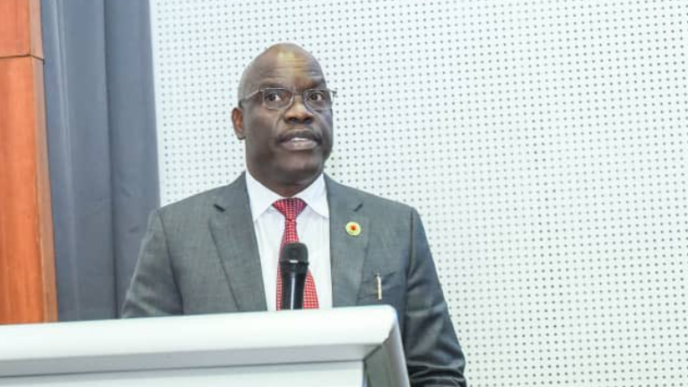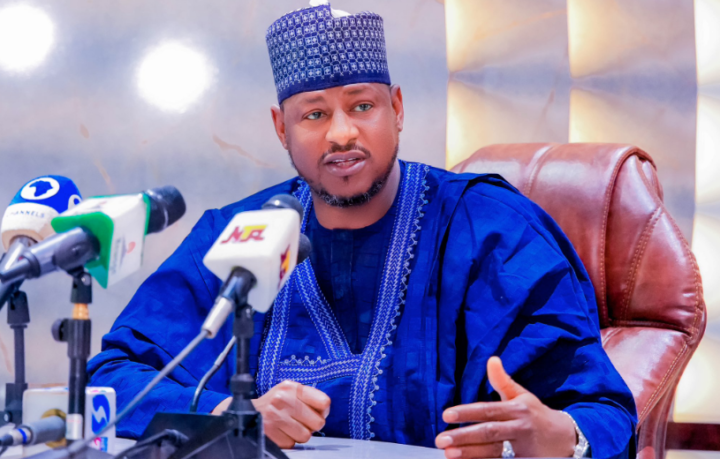There is no better word to describe the frightening level of poverty in the land, co-existing with opulence as being displayed by those who have unfettered access to our common patrimony in the name of being public servants, than paradox. Following the “surgery-devoid-of-anaesthesia” being carried out by President Bola Tinubu on the country’s economy, more Nigerians have become multidimensionally poorer than there are, people who can afford the basic necessities of life, on a daily basis, in last couple of years. That is socio-economic inequality on steroid. And those in power carry on as nothing is wrong with that socio-economic (dis)order. Nigerians now wallow in absolute despondency, looking forward to seeing worse things than they’ve seen in the previous days.
But if we’re to go by Aristotle’s postulation that, “government (especially in a democracy) is all about providing good lives for a higher number of the citizens”, one should be pardoned for looking up to those in Government Houses across the country — from Lagos to Maiduguri; from Ilorin to Yola; from Sokoto to Calabar; from Kano to Port Harcourt, for a change for the better. That, however, seems to be too much of an expectation, at the moment. Most of the 36 State Governors are operating in ways that are, seemingly, detached from the reality of the common man on the street. The rich are becoming richer, while the poor become poorer, as the day goes by.
MORE MONEY RESULTING FROM ZERO SUBSIDY
One of the most significant outcomes of “total subsidy removal” on fuel, and other essential commodities being hitherto subsidised by the Federal Government, is the increase in the volume of money available for sharing by the Federation Account Allocation Committee (FAAC). Funds accruing, on a monthly basis, to each of the 812 governments across the three tiers of government (774 local governments, 36 State Governments, FCDA, and the Federal Government), have tremendously increased in the last 18 months or so. Thanks to zero-subsidy. But unfortunately, that has not reflected in the quality and quantity of service delivery to the people, by those who hold our common patrimony in trust for us.
Advertisement
Ideally, no Nigerian should suffer as much as the majority of us do now, if one considers the enormity of mineral resources’ endowment it has pleased the Grand Architect of the universe to bless us with. Nigeria, according to late Chief MKO Abiola, the acclaimed winner of the annulled June 12, 1993, Presidential election, Nigeria has more than enough to cater for the needs of the people, but not enough for the greed of those who by accident of history, find themselves in the corridor of power. Meanwhile, the latter category is not letting go of the grip thrusted upon them by accidents of history. Although, it is not all of them that have their “senses of judgment” beclouded by avarice, some just don’t have the intellectual capacity to deliver on what the real needs of the masses are, despite the windfall. On the other hand, some have fantasies for things that do not align with the yearnings and aspirations of the people. They therefore fail spectacularly to implement projects that are impactful on the socio-economic lives of the common man. Those in this latter are more common among the 36 State Governors than those in the former.
HERE COMES THE WINDFALL
Following the zero-subsidy windfall, the very common denominator among the priorities of most of these public office holders (State Governors, to be specific, who renowned Professor Bolaji Akinyemi recently referred to as “Emperors who are under no check by any institution”) is the obsession with building flyover bridges around their respective State capitals. They construct, even in places where none is necessary. They do this, under the cloak of urban renewal. In some places where, all that is required to ease inner-city vehicular traffic is an expanded roundabout, they build flyover bridges that end up not serving any more purpose than a roundabout would do.
Advertisement
THE GERMANE QUESTIONS
One would then be tempted to ask, how do such projects lead to an improvement in the vital econometrics that are relevant to poverty eradication, or at least, alleviation? How do such white elephant projects improve the quality of critical factors of production, needed to reflate a recessive economy? How do such projects bring about an increase in food production to enhance adequate national food security in a country where a humanitarian gestures of distributing food items always ends in heavy loss of lives? Remember, Ibadan, Okija, and Abuja in December 2024. What about the lord’s of the manor reorder their priorities to reflect what the people need, to escape from the pang of the excruciating poverty ravaging the land, instead of being fixated on the aesthetics?
Rather than “urban renewal”, why not focus on an aggressive rural development plan, using a multi-sectoral approach, otherwise known as “Integrated Rural Development,” to stem rural-urban migration that tends to put the little available social amenities under too much stress? That is what, I think, should be done — pardon my extreme loyalty to common sense. Otherwise, those facilities being built in the name of urban renewal would sooner, rather than later, be overwhelmed by the influx of rural dwellers, who, daily, throng the urban centres in search of the proverbial greener pasture — better life. And before anyone says, “Urban Renewal”, we’d be back to square-one, as overwhelmed infrastructures would, in no time, be worn out because it is serving much more population than it was designed to do. It would then turn to a case of “penny wise, pound foolish”.
It is, therefore, high time the Governors reordered their priorities, and focused on impactful projects that would bring about an increase in the quality of factors of production (for the enterprising Nigerians), as well as the productive capacities of the people for them to be able to work and earn decent wages that would make life more liveable for them. The Governors (especially) and other political office holders need to be less fixated on the aesthetics in the capital cities at the detriment of developing the productive capacities of the citizens, especially in the rural, where the larger proportion of the people live. They need to change their definition of socio-economic empowerment. You don’t empower people by giving as many as over a thousand people all manners of appointments. Some people get appointed as “Senior Special Assistant” (SSA) Garden Egg,” “SSA Fura dá Nunu,” “SSA Kunnu Aya,” “SSA Kai Kai,” “SSA Okporoko,” SSA Amala and Gbegiri, each on a monthly salary of less than ₦100,000 (one hundred thousand Naira). Interestingly, the so-called appointees are never going to eat the salaries alone. They, too, would have their own legion of political hangers-on waiting to grab a bite of the cake.
Advertisement
Such funds, deployed to paying for the maintenance of those offices, can be better utilised, procuring farm inputs for farmers, at subsidised rates. Make tractors available for hire at a relatively cheaper rate for farmers, to boost agriculture. Get them fertilisers, not to be distributed only to commercial farmers who produce and export food to neighbouring African countries, especially CFA countries, simply because their currency is now stronger than the Naira, but also, to peasant farmers who produce a little more than they need, and then, sell the rest at the local market. Distribute such inputs to peasants or small-scale farmers, who would make their produce available for local consumption.
NEED TO BORROW A LEAF?
I’d recommend other governors borrow a leaf from what the Niger State government, under the leadership of Governor Mohammed Umaru Bago, is doing in the agricultural sector — something worthy of emulation. The Niger State Government recently procured billions of Naira worth of agricultural equipment and has also taken delivery of them, to diversify the agricultural value chain and scale up agricultural production. The programme christened ‘Total Agricultural Support Programme’ (TASP) is in collaboration with Campo Company of Brazil. It is engaging in a specialized agro support programme with the Niger State Government, which will in turn lead to the path of a massive food production. Another worthy example is Governor Babagana Zulu, who announced recently that, petrol would be made available at a subsidised rate of ₦600 per litre, for farmers who need generators for irrigation for the purpose of dry season farming. There is no one-fits-all jacket for this type of approach, but they can be customised to each of the States’ local peculiarities. But the key point is that, it must be with the philosophy of, “Give them hooks, instead of fish”. These are a few examples from which template, those other Governors who appear to be sleeping on duty, can copy and implement for the betterment of their respective States, instead of bastardising creation of offices, like Special Assistants, Senior Special Assistants, Special Advisers, Senior Special Advisers; even Special Admirers, and Senior Special Admirers. These are offices, most of which are not known to the constitution, but all for the purpose of political patronage.
Therefore, we can’t continue to watch, while they use our future to settle political IOU. We can’t continue to spend money meant to finance production on consumption, and expensive lifestyle. We can’t allow them to continue using our collective future to satisfy their individual fantasies. Furthermore, we can’t afford to allow them to liter the entire landscape with flyover bridges, while the citizens go hungry. There is a need for the 36 State Governors to reorder their priorities, especially now that they’re yet to be under as much pressure from the citizens (due to lack of adequate awareness), as the president is. Whenever Nigerians want to call somebody out, for their plight, the fall guy is usually the President — poor guy, who controls no more than 52% of the total revenue accruing from the FAAC. Remember, the formula allocates 52.68%, to the Federal Government; 26.72% to the State, and 20.60% to the Local Governments. Meanwhile, the Federal Government remains the highest executor of physical infrastructural projects across the country. To think that, the State Governors have submerged the local governments’ treasuries with their hip pocket for decades now, coupled with 13% derivation that still goes to the state, one begins to wonder, how they have managed to escape the kleig light of the citizens’ advocacy for accountability and responsibility! People hardly remember the humongous amount of money on which the state governors are sitting. Worse still, the State legislature has become so weak, even to the point of non-existence in most States, to call them to account. Someone said, calling them (State legislators) a rubber-stamp legislature would amount doing them a massive honour, as they’re worse than one. Nonetheless, the governors need to pity the rest of us, by reordering their priorities to make them fall in line with the yearnings and aspirations of the over 200 million of us who are by virtue of nationality referred to as Nigerians.
Advertisement
Abubakar writes from Ilorin, Kwara state. He can be reached via 08051388285 or [email protected]
Advertisement
Views expressed by contributors are strictly personal and not of TheCable.
Add a comment

